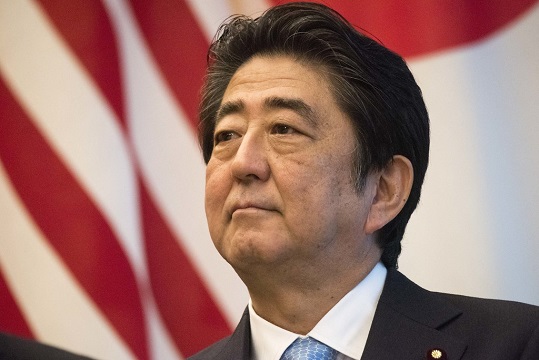
Japan’s former prime minister Shinzo Abe has died in hospital after he was shot at a political campaign event, say local media.
Mr Abe was shot at twice while he was giving a speech in the southern city of Nara on Friday morning.
He immediately collapsed and was rushed to the nearest hospital. Pictures taken at the scene showed him bleeding.
Security officials at the scene tackled the gunman, and the 41-year-old suspect is now in police custody.
In an emotional press conference earlier, prime minister Fumio Kishida condemned the attack, saying: “It is barbaric and malicious and it cannot be tolerated.”
The Fire and Disaster Management Agency had earlier confirmed that Mr Abe had a bullet wound on the right of his neck, and also suffered subcutaneous bleeding under the left part of his chest.
It is unclear if both shots hit him, or if a bullet hit him on the neck and travelled elsewhere.
Mr Abe was said to be conscious and responsive in the minutes after the attack, but the 67-year-old’s situation later deteriorated and he had to receive a blood transfusion in hospital, according to reports.
Eyewitnesses see man with large gun
Mr Abe was giving a stump speech for a political candidate in Nara at a road junction when the attack happened.
Eyewitnesses said they saw a man carrying what they described as a large gun and firing twice at Mr Abe from behind.
The suspect has been identified as Nara resident Tetsuya Yamagami. Local media reports say he is believed to be a former member of Japan’s Maritime Self-Defense Force, Japan’s equivalent of a navy.
Mr Abe’s speech came as part of a campaign for his former party, the Liberal Democratic Party, as upper house elections in Japan are due to take place later this week.
Ministers across the country were later told to return to Tokyo immediately, according to local reports.
On Japanese social media, the hashtag “We want democracy, not violence” was trending, with many social media users expressing their horror and disgust towards the incident.
Mr Abe, who was Japan’s longest-serving prime minister, held office in 2006 for a year and then again from 2012 to 2020, before stepping down citing health reasons.
He later revealed that he had suffered a relapse of ulcerative colitis, an intestinal disease.
While he was in office, he pushed hawkish policies on defence and foreign policy, and has long sought to amend Japan’s pacifist post-war constitution.
He also pushed for an economic policy that came to be known as “Abenomics”, built on monetary easing, fiscal stimulus and structural reforms.
He was succeeded by his close party ally Yoshihide Suga, who was later replaced by Fumio Kishida.
‘Despicable attack’
Incidents of gun violence are rare in Japan, where handguns are banned – and incidents of political violence are almost unheard of.
In 2014, there were just six incidents of gun deaths in Japan, as compared to 33,599 in the US. People have to undergo a strict exam and mental health tests in order to buy a gun – and even then, only shotguns and air rifles are allowed.
Prominent voices across the world have been quick to condemn the incident, with UK Prime Minister Boris Johnson calling it a “despicable attack”.
The US ambassador to Japan, Rahm Emanuel, said Mr Abe had been an “outstanding leader of Japan and unwavering ally of the US”, adding that the US was “praying” for his well-being.
Chinese Foreign Ministry spokesman Zhao Lijian said his country was shocked by the attack and hoped for Mr Abe’s speedy recovery.
He added that “this unexpected incident should not be associated with Sino-Japanese relations” and had no comment when asked about Chinese social media reaction.
Comments gloating over the attack on Mr Abe have dominated Chinese social media, and have also surfaced on Korean platforms.
China and South Korea have historically complicated and fraught relationships with Japan. Mr Abe, known for his military hawkishness, was unpopular with citizens of both countries during his term in office.

The first question many people will be asking is what was the gun used and how did the shooter get hold of it?
The answer appears to be that he may have built it himself. Photographs taken as the suspect was being apprehended show what looks like an improvised, or home-made, double-barrelled shotgun.
Gun violence is very rare in Japan, and guns are extremely difficult to own. Political violence is also extremely rare.
Mr Abe did have a team of security police with him. But it appears the shooter was still able to get to within a few meters of Mr Abe without any sort of check, or barrier.
The shooting of such a prominent figure is profoundly shocking in a country that prides itself on being so safe.
Source: bbc.co.uk

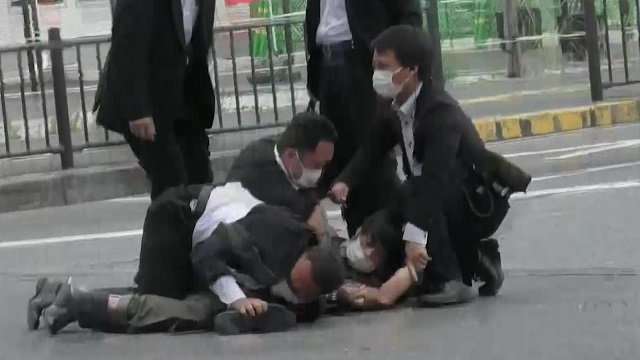


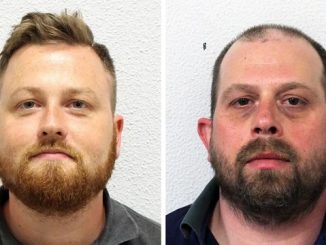
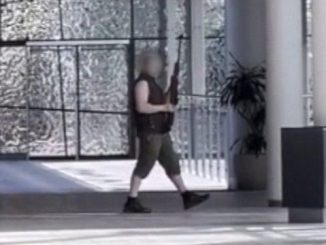
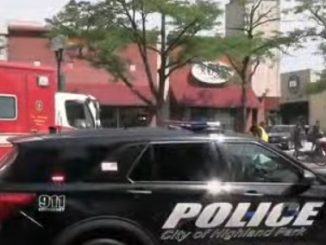
Be the first to comment